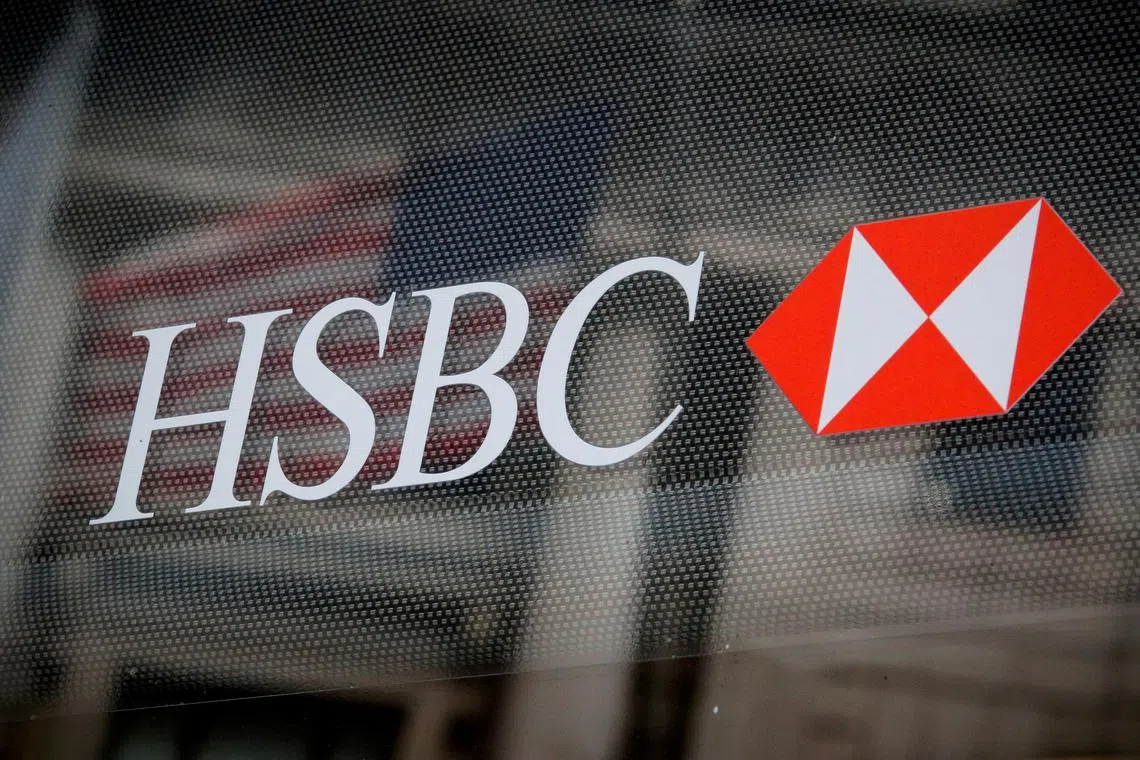HSBC rewards shareholders with buyback, dividend as profit trebles
Sign up now: Get ST's newsletters delivered to your inbox

HSBC reported a 212 per cent increase in first-quarter pretax profit as it benefitted from rising interest rates around the world.
PHOTO: REUTERS
HONG KONG - HSBC Holdings said on Tuesday that its profit trebled in the first quarter, beating expectations, as rising interest rates boosted the lender’s income and helped it pay its first quarterly dividend since 2019.
The strong results of HSBC and Asian rival DBS Bank underscore the boost to their balance sheets from aggressive policy tightening, even though it has brought banking sector turmoil, chiefly in the United States.
On Monday, regulators seized First Republic Bank and sold its assets to JPMorgan Chase & Co in a deal to resolve the largest US bank failure since the 2008 financial crisis and draw a line under the bank sector jitters.
With the rate cycle nearing a peak, the challenge for the likes of HSBC, Europe’s largest bank, and DBS will be to sustain their margins in 2023 and beyond.
HSBC chief executive Noel Quinn said the results showed the bank’s strengths in a rising rate environment, and played down the risks of further contagion for the banking sector.
“We do not believe there is a global banking crisis on the horizon. We do not see a negative impact on our business as a consequence of First Republic Bank’s rescue,” Mr Quinn told a conference call.
HSBC posted a pre-tax profit of US$12.9 billion (S$17.6 billion) for the quarter ended March, versus US$4.2 billion a year earlier.
The profit was much higher than the US$8.64 billion average estimate of analysts compiled by the bank.
Hong Kong shares of HSBC rose 3.3 per cent in afternoon trading.
HSBC’s headline profit was boosted by a reversal of a US$2 billion impairment it took against the planned sale of its French business, reflecting the fact that the deal may not go through.
It had warned in April that its France disposal could be in jeopardy over regulatory capital concerns for the buyer.
The London-headquartered bank also reported a delay in the timeframe for the completion of the sale of its Canada business, a key part of its strategy to shrink in slow-growing Western markets where it lacks scale.
The bank said the planned US$10 billion sale, originally slated to be completed by the end of 2023, will now likely go through only in the first quarter of 2024.
HSBC has tried recently to accelerate its pivot to Asian markets, in part to head off calls from its biggest shareholder, Ping An Insurance Group of China, to spin off the Asia unit to boost shareholder returns.
Shareholders will vote at the bank’s annual meeting on Friday on two resolutions filed by a Hong Kong investor and supported by Ping An, calling for higher dividends and a regular update on strategic proposals such as the spin-off plan.
HSBC, which has opposed the resolutions, criticised the spin-off proposal again on Tuesday.
Shareholder advisory firms Glass Lewis and Institutional Shareholder Services have recommended that investors vote against the proposal, which requires a 75 per cent approval to pass.
Norway’s state investment fund, the bank’s fourth-biggest shareholder with 3 per cent ownership, has also said it will vote in line with HSBC.
The lender announced a dividend of 10 US cents per share and flagged the first of a new cycle of buybacks of up to US$2 billion.
“With the good momentum we have in our business, we expect to have substantial future distribution capacity for dividends and share buybacks,” Mr Quinn said in the results statement.
HSBC, in common with some other British lenders, reported that deposits fell 0.6 per cent for the quarter to US$1.6 trillion, excluding those it acquired by bailing out the local arm of failed US lender Silicon Valley Bank and the reclassification of French retail deposits.
Mr Quinn said the drop was “nothing significant”.
Big European banks have reported deposits falling as consumers, faced with a cost-of-living crisis, eat into savings and shop around for higher-paying products such as fixed-term deposits and investment funds.
Despite the surging profit, HSBC did not raise its key performance target of reaching a return on tangible equity of at least 12 per cent from 2023 onwards, while analysts were estimating the key metric would be lifted. REUTERS


